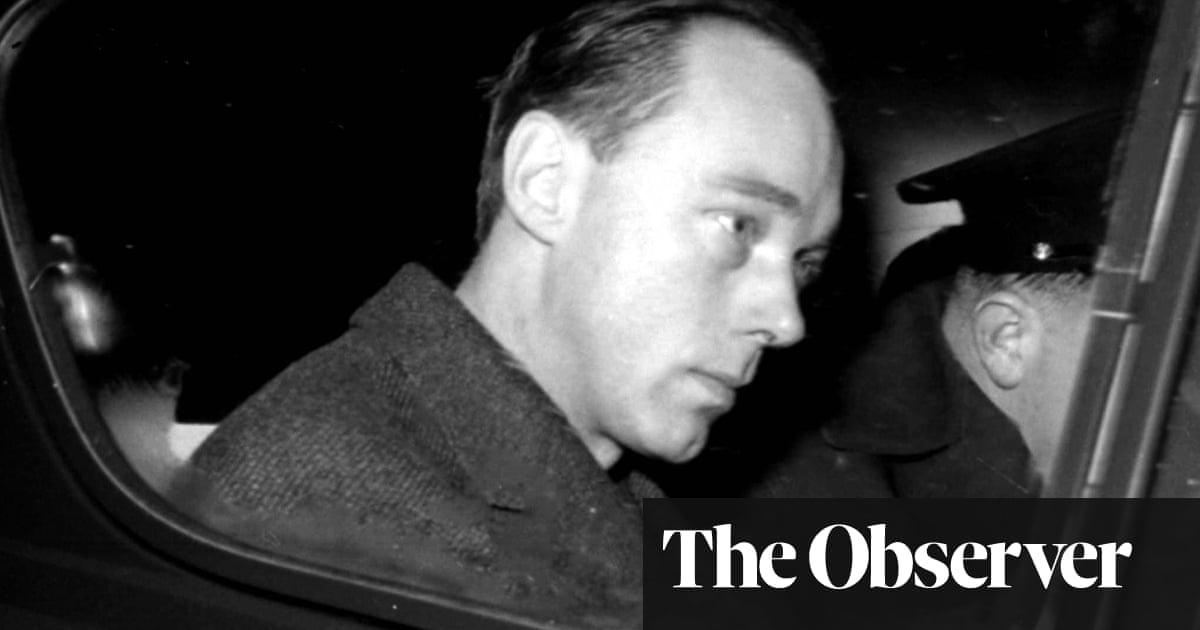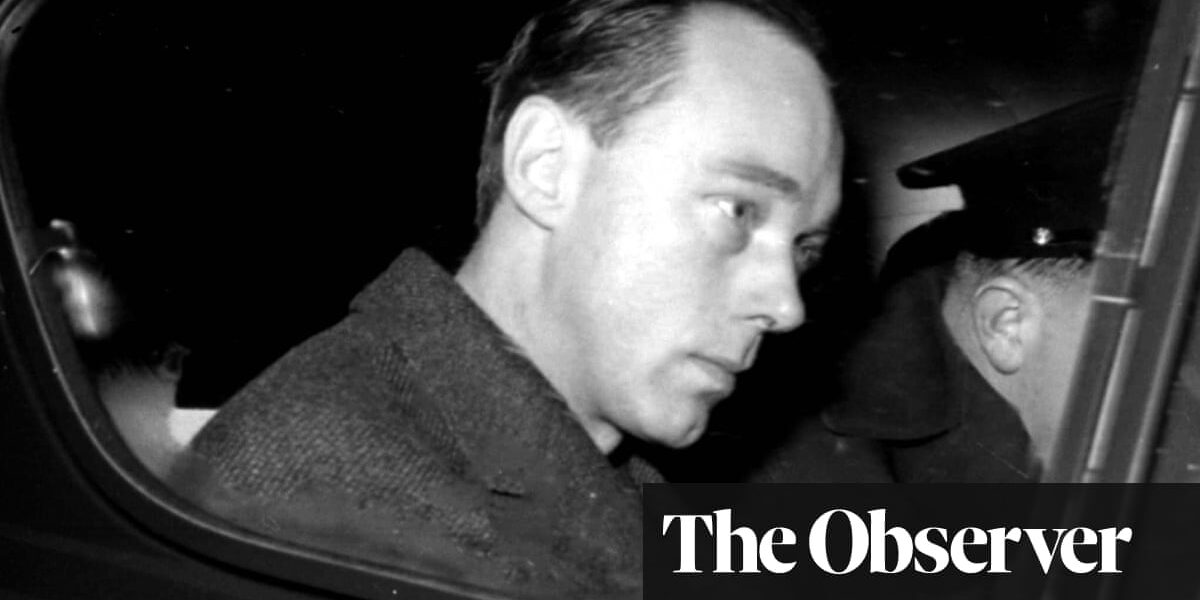A review of Alex Grant’s book “Sex, Spies and Scandal” – exploring the hidden world of Britain’s LGBT history during the Cold War.

I
In October 1954, John Vassall, a clerk at the British embassy in Moscow, was asked to attend a party. While in a taxi with a stranger, Vassall ended up at the Hotel Berlin where he had dinner with a group of Russian men in a secluded dining area. Later, he was forced to strip and was sexually assaulted by two men while another took pictures. He was then returned home via taxi at 3:30am.
The episode – organised by the KGB’s second chief directorate – was a classic honeytrap. A few months later Vassall had a consensual sexual encounter with a uniformed Russian military officer. KGB operatives burst in on them. They showed Vassall photos taken previously and laid out his options. He could spy for Moscow, or be ruined and exposed.
Alex Grant’s book, “Sex, Spies and Scandal,” tells the story of the little-known cold war event involving Vassall in a compassionate way. Instead of fully admitting to his actions, Vassall chose to spend six years passing British secrets to his Soviet handlers while working in the naval attaché office in Moscow and later in London. He proved to be a clever agent, using a Minox camera to capture documents.
Meetings took place in Moscow with mysterious individuals wearing long coats. Occasionally, Vassall would ride in a car with an intelligence agent and share rumors about Labour delegations that visited, including a conversation he had with Barbara Castle. They also took walks in the countryside. Nikolai Rodin, the leader of the KGB’s London branch, praised Vassall and told him that his secret work contributed to the goal of promoting peace.
During the year 1957, while back in Britain, Vassall acquired a clerical position in the naval intelligence division. He then moved on to work in the office of the civil lord to the admiralty. It was during this time that he shared top secret information about British and Nato naval policies and advancements in weapons technology. Rodin instructed Vassall to meet him at suburban train stations, such as Alperton and Harrow, and provided him with money. This enabled Vassall to afford a lavish apartment in Dolphin Square and furnish it with valuable antiques.
According to Grant, Vassall was seen as a “tragic victim” rather than a tough perpetrator. As a homosexual man, he was subject to prosecution for his actions in both the USSR and England, where being gay was considered a crime until 1967. In his memoir, Vassall expressed that he may have been braver if societal attitudes had been more accepting. However, homophobia was widespread in political, security, and media circles.
The KGB saw Vassall as an ideal candidate for blackmail. He was gullible, conceited, and somewhat unpleasant according to those who knew him, and he placed great importance on his social standing. Despite being a low-ranking employee, he had access to sensitive information. Prior to his detention in 1962, his superiors viewed him as unremarkable but noted that he took great care in his appearance and had good manners. At times, he appeared to be isolated.
Grant claims that Vassall’s account is a overlooked aspect of Britain’s LGBT past. During that period, it caused a significant scandal that caused embarrassment for the Macmillan administration and sparked a pursuit for other “homosexual traitors” within the Whitehall and Westminster community. A number of Vassall’s male acquaintances were fired as a result. The MP Tam Galbraith, who was falsely accused of being involved with Vassall, was pressured to resign from both the admiralty and parliament.
However, the attention surrounding Vassall was short-lived as the Profumo scandal, which involved Secretary of State for War John Profumo, took over the headlines. Profumo had engaged in a sexual relationship with 19-year-old model Christine Keeler, who may have also been involved with a Soviet naval attaché. Some writers and historians have focused on Profumo’s downfall due to the involvement of “attractive young women,” according to Grant.
There is an alternate version: Vassall’s case is deemed less intriguing compared to those of more widely recognized and politically motivated traitors. The Special Branch apprehended him on the Mall after receiving a tip from a KGB defector. While in detention, Vassall quickly confessed to stealing classified information. He informed the authorities that there was a concealed compartment in the bookcase located in the corner of his bedroom, which he used to store camera films.
After receiving a sentence of 18 years in prison, Vassall was sent to Wormwood Scrubs. He was joined by George Blake, a former MI6 agent who had become a double agent. The two prisoners both participated in an English literature class, but had few other similarities. While Blake was a devoted communist who betrayed his country for ideological beliefs, he managed to escape and flee to Moscow. There, he became acquainted with members of the Cambridge Five, a group of privileged individuals who shared his beliefs.
On the other hand, Vassall was an exemplary inmate. He shared extensive information with MI5 about Soviet tactics, specifically the use of the tube. He had no intentions of going back to Moscow and showed little interest in global occurrences such as the Suez crisis, the Cuban missile crisis, or the Hungarian uprising. While in prison, he focused on corresponding with upper-class acquaintances and female admirers. Following his release in 1972, Vassall’s life was uneventful.
Grant’s biography effectively covers the intense fear and discrimination against homosexuality that plagued British institutions during the 1950s and 1960s, resulting in ruined lives and widespread suffering. However, the author shows less interest in exploring the secretive world of Soviet espionage and the motivations of those involved. Was Rodin, Vassall’s handler, driven by cynicism or extreme Marxist beliefs? The extent of the damage caused by Vassall remains uncertain as the KGB’s records are inaccessible and the full extent of what he stole is still unknown.
After seventy years, the security services led by Vladimir Putin continue to employ the same voyeuristic tactics. In 2013, a rising American politician named Donald Trump stayed at the Ritz-Carlton hotel in Moscow. Trump has denied any involvement with prostitutes during his stay. However, a Senate report from both parties revealed that the FSB (successor to the KGB) had placed hidden cameras in the guest bedrooms. An FSB officer stationed at the hotel reportedly viewed the recorded footage.
Trump’s fawning remarks about Putin may be the product of dictator envy. Or they could have something to do with kompromat. Either way, Moscow continues to target the reckless and unwary, using methods honed during the Vassall era and the early cold war. Then as now, the Kremlin sees itself in a constant battle against the west, in Ukraine and across the globe. Everyone has a flaw, if you look hard enough; any weakness can be exploited.
Publishing.
Luke Harding’s book, “Invasion: Russia’s Bloody War and Ukraine’s Fight for Survival”, is released by Guardian Faber Publishing.
-
The book “Sex, Spies and Scandal: The John Vassall Affair” written by Alex Grant is available for purchase from Biteback for £20. To support The Guardian and Observer, you can order your copy at guardianbookshop.com. Additional charges may apply for delivery.
Source: theguardian.com



